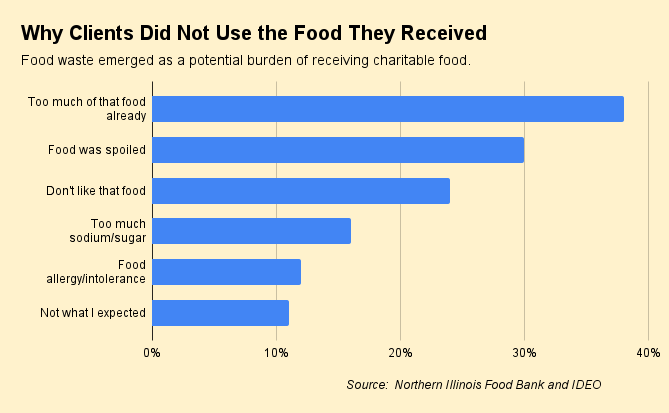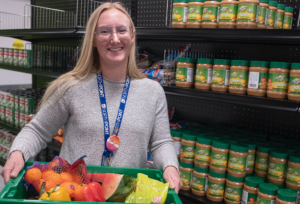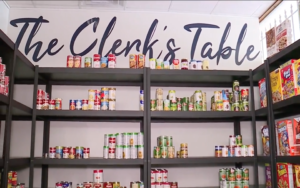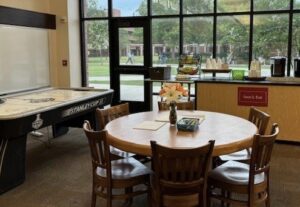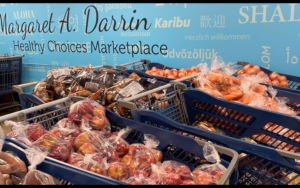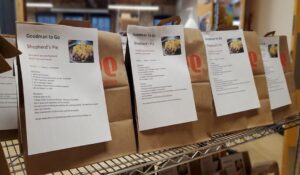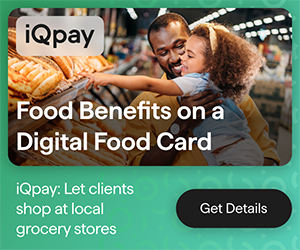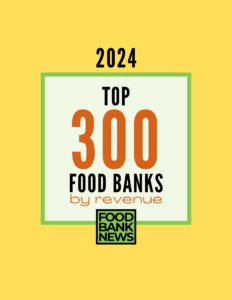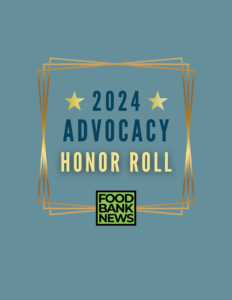The simplest form of client choice in food banking is to let clients pick the food they’d like to take home, as if in a grocery store. At Northern Illinois Food Bank, client choice encompasses much more.
The food bank, which is the third largest in Illinois with $129 million of FY 2019 revenues, sees it as important to also offer different ways of accessing the food, at a multitude of times, and in various quantities. It is backing up its assertion with research that has led it to a greater understanding of why choice in all its forms is so important.
The food bank’s view stands out at a time when many organizations are still working to bring the most basic elements of food choice to their programs. Its stance stems partly from its newly upgraded strategic mission, which emphasizes dignity, equity and convenience as essential components of providing services.

“Choice is not just the ability to choose food, it’s the ability to choose how to get it, where to get it, how often and how much,” said Jennifer Lamplough, Senior Director of Strategy at Northern Illinois Food Bank, speaking last month at a webinar hosted by the Foodshare Institute for Hunger Research & Solutions. “It all ties back to dignity.”
The most striking example of Northern Illinois’ commitment to choice is its My Pantry Express service, which lets clients order the food they would like online (or by phone, if necessary) and pick it up at a location of their choosing. The food bank also operates a market, which (in non-pandemic times) lets clients shop as if at a grocery store and puts minimal limits on the number and type of items they can take. Soon it will allow clients to choose free home deliveries through a partnership with DoorDash. “One option is not the answer,” Lamplough said. “It’s a rainbow or spectrum of choice.”
[See related article: Link2Feed Adds DoorDash Tech to Support Home Deliveries.]
Recently, Northern Illinois contracted with the human centered design firm IDEO to help it clarify why client choice is so important. In addition to intensively engaging with a panel of My Pantry Express users for seven weeks, the firm also surveyed more than 1,200 clients to better understand their views on choice.
One surprising reason for choice is the guilt that many clients feel about wasting food they cannot use, Lamplough said, noting that clients may have too much of a particular food already, may not like it, or may be allergic to it. “Transferring food waste to clients is a burden on them,” she said. “That lack of quality and choice feels like a lack of dignity.”
It also emerged that clients value choice as a way of being able to cook the meals they want. Being able to choose ingredients was more meaningful than having pre-made meals or even a larger quantity of food. “When you choose what to cook it becomes an act of love and you can be proud of the meal you’re serving,” Lamplough said.
Choice also lets clients be authentic to their cultural identities. “Food is such a huge part of culture,” Lamplough said. “The best way to show respect is to acknowledge those different needs and give those options.”
The research findings also underscored why choice needs to extend beyond just food selection, especially for people who are new to charitable food. “The more we can normalize the experience, and the more it feels like ordering from the grocery store, then the more willing people are to accept the help,” Lamplough said.
Ultimately, enabling people to shop as if in a regular grocery store — and even providing opportunities for them to give back when they can — allows them to feel they are part of a community. “It creates a sense of peace and of belonging that will help them continue to use the service,” Lamplough said.
The move toward client choice can take many forms and may start small, said Katie Martin, PhD, Executive Director at the Foodshare Institute for Hunger Research & Solutions, also speaking on the webinar. Every pantry operates under different circumstances, given factors like the space they have, their community, their volunteers, and hours of operation. “There’s no one cookie-cutter way to do this work, so that gives the flexibility to try new things,” she said.
Northern Illinois found one small way to encourage choice at its brick-and-mortar location, even as it continues to offer pre-packaged items in drive-through mode due to the pandemic. The food bank allows people to say no to certain items, helping them to avoid food waste. “Having the ability to refuse something is a way to have choice,” Lamplough explained. “It gives peace of mind that they’re not taking something they can’t use, because there’s a lot of guilt around that.” — Chris Costanzo
Like what you’re reading?
Support Food Bank News